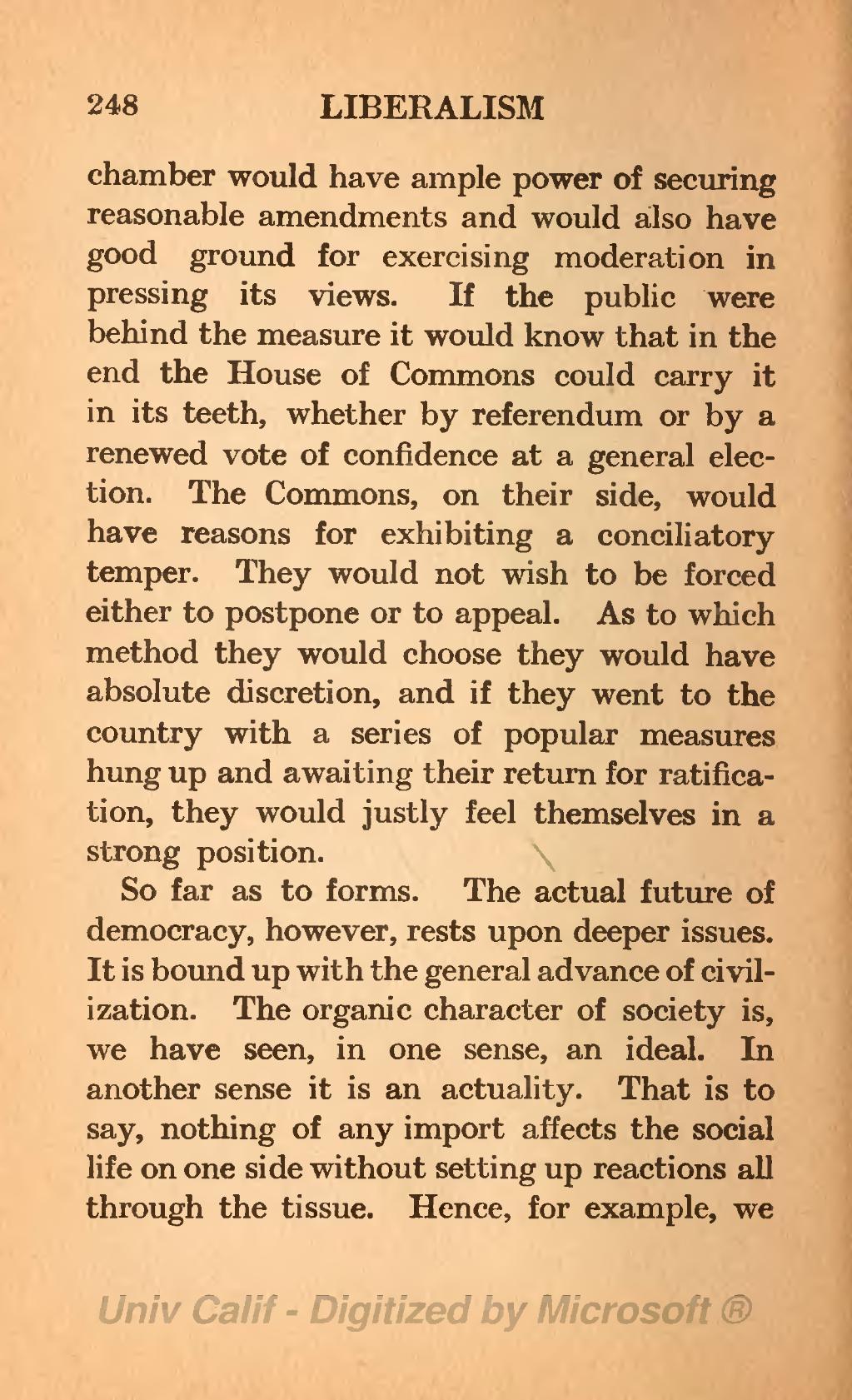chamber would have ample power of securing reasonable amendments and would also have good ground for exercising moderation in pressing its views. If the public were behind the measure it would know that in the end the House of Commons could carry it in its teeth, whether by referendum or by a renewed vote of confidence at a general election. The Commons, on their side, would have reasons for exhibiting a conciliatory temper. They would not wish to be forced either to postpone or to appeal. As to which method they would choose they would have absolute discretion, and if they went to the country with a series of popular measures hung up and awaiting their return for ratification, they would justly feel themselves in a strong position.
So far as to forms. The actual future of democracy, however, rests upon deeper issues. It is bound up with the general advance of civilization. The organic character of society is, we have seen, in one sense, an ideal. In another sense it is an actuality. That is to say, nothing of any import affects the social life on one side without setting up reactions all through the tissue. Hence, for example, we
